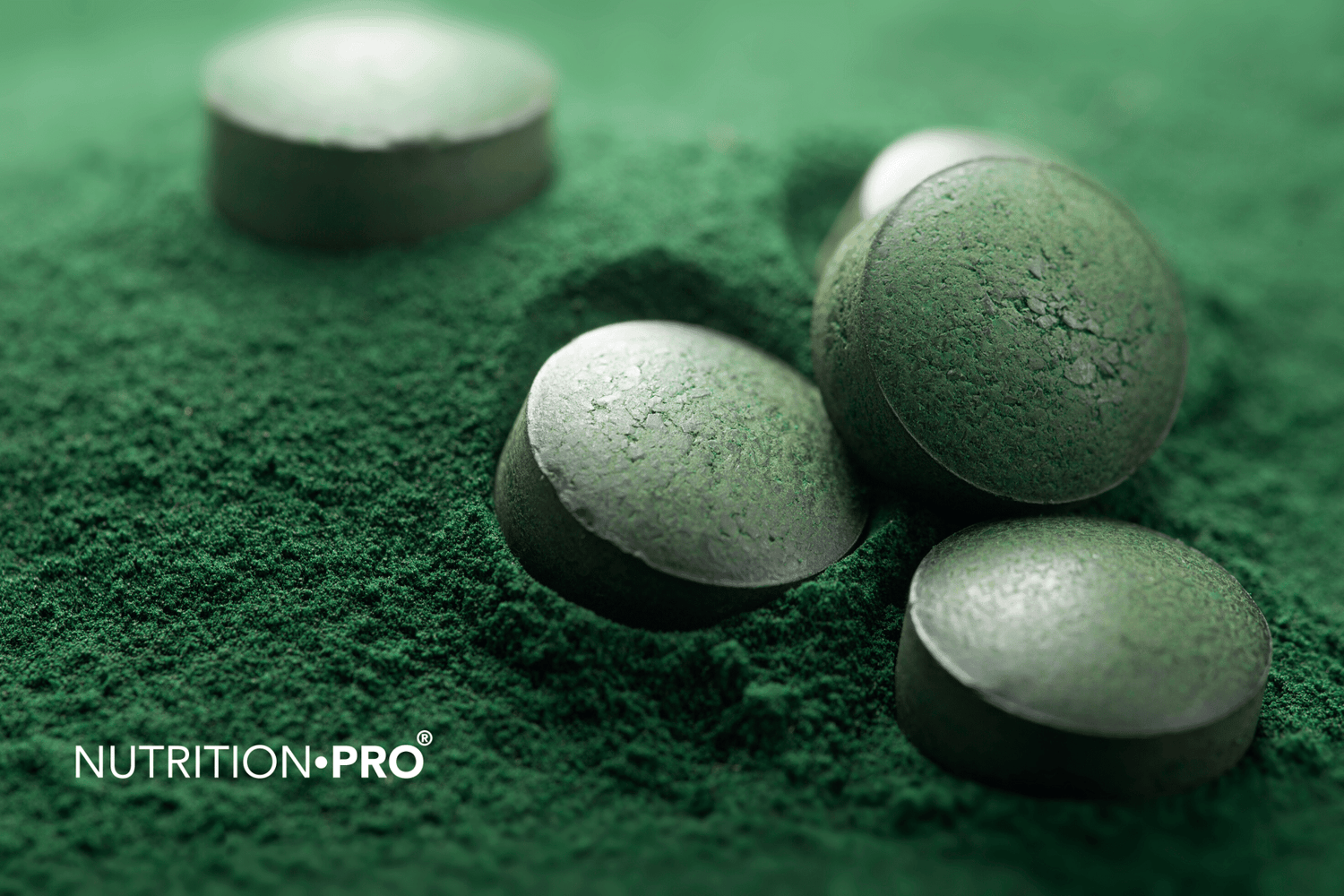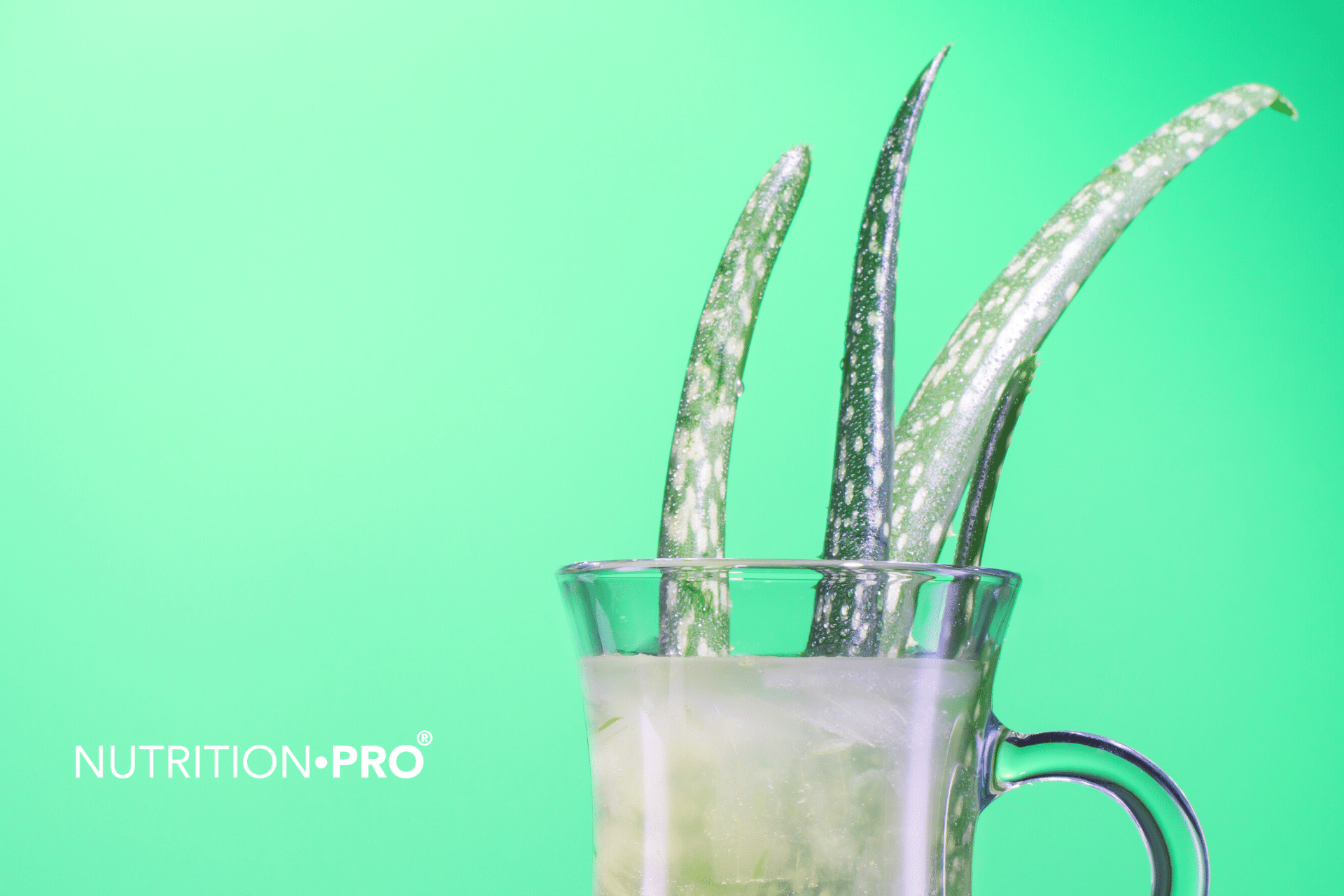What is spirulina?
Spirulina is one of the most popular dietary supplements in the world .
Appeared on earth more than 3 billion years ago, spirulina is a type of blue-green algae.
Described as a miraculous algae , is one of the oldest plants. You have surely heard of his health benefits and its composition particularly rich in nutrients .
From super foods (foods rich in nutrients , considered particularly beneficial in terms of health and well-being ), we find the spirulina .
It is loaded with various nutrients and antioxidants that can benefit your body and brain.
Spirulina is an organism that grows in both fresh and salt water.
It is a type of cyanobacteria, which is a family of single-celled microbes often called blue-green algae or miracle algae.
Just like plants, cyanobacteria can produce energy from sunlight through a process called photosynthesis.
Spirulina was eaten by the ancient Aztecs but became popular again when NASA proposed that it could be grown in space for use by astronauts .

Discover our organic spirulina by clicking here
What are the benefits of spirulina?
Here are 10 evidence-based health benefits of spirulina .
1. Spirulina is extremely rich in many nutrients
A standard daily dose of spirulina is 1 to 3 grams, but doses up to 10 grams per day were used effectively.
This tiny seaweed is packed with nutrients. One tablespoon (7 grams) of dried spirulina powder contains :
- Proteins: 4 grams
- Vitamin B1 (thiamin): 11% of RDA
- Vitamin B2 (riboflavin): 15% of RDA
- Vitamin B3 (niacin): 4% of RDA
- Copper: 21% of RDA
- Iron: 11% of RDI
- It also contains decent amounts of magnesium, potassium, and manganese and small amounts of just about every other nutrient you need.
Plus, that same amount contains only 20 calories and 1.7 grams of digestible carbs.
Gram for gram, spirulina may be the most nutritious food on the planet .
One tablespoon (7 grams) of spirulina provides a small amount of fat - about 1 gram - including both omega-6 and omega-3 fatty acids in a ratio of about 1.5 to 1.0.
The quality of the protein contained in spirulina is considered excellent - comparable to eggs. It gives all the essential amino acids you need.
It is often claimed that spirulina contains vitamin B12, but this is false. It contains pseudovitamin B12, the effectiveness of which has not been demonstrated in humans .
2. Spirulina has powerful antioxidant and anti-inflammatory properties
Oxidative damage can harm your DNA and your cells.
This damage can lead to chronic inflammation, which contributes to cancer and other diseases .
Spirulina is a fantastic source of antioxidants , which can protect against oxidative damage.
Its main active component is called phycocyanin. This antioxidant substance also gives spirulina its unique blue-green color.
Phycocyanin can fight free radicals and inhibit the production of inflammatory signaling molecules, providing of the effects antioxidants and anti-inflammatories impressive .
3. Spirulina May Lower “Bad” Levels of LDL Cholesterol and Triglycerides
Heart disease is the leading cause of death worldwide.
Many risk factors are linked to an increased risk of heart disease.
It turns out that spirulina has a positive impact on many of these factors. For example, it can lower total cholesterol, “bad” LDL cholesterol, and triglycerides , while increasing "good" HDL cholesterol.
In a study of 25 people with type 2 diabetes, 2 grams of spirulina daily significantly improved these markers .
Another study in people with high cholesterol determined that one gram of spirulina a day reduced triglycerides by 16.3% and “bad” LDL by 10.1% .
Several other studies have found favorable effects – albeit with higher doses of 4.5 to 8 grams per day .
4. Spituline protects “bad” LDL cholesterol from oxidation
The fatty structures in your body are susceptible to oxidative damage.
This is called lipid peroxidation, a key driver of many serious diseases .
For example, one of the key steps in the development of heart disease is the oxidation of "bad" LDL cholesterol .
Interestingly, the antioxidants of spirulina appear to be particularly effective in reducing lipid peroxidation in humans and animals .
In a study of 37 people with type 2 diabetes, 8 grams of spirulina daily significantly reduced markers of oxidative damage. It also increased levels of antioxidant enzymes in the blood .
5. Spirulina has anti-cancer properties
Some evidence suggests that spirulina has anticancer properties .
Animal research indicates that it can reduce the frequency of cancer and the size of the tumor .
The effects of spirulina on oral cancer - or oral cancer - have been particularly well studied.
A study looked at 87 Indian people with precancerous lesions - called oral submucosal fibrosis (OSMF) - in the mouth.
Among those who took 1 gram of spirulina daily for a year, 45% saw their lesions disappear – compared to just 7% in the control group .
When these people stopped taking spirulina , nearly half of them had lesions redevelop the following year.
In another study of 40 people with OSMF lesions, 1 gram of spirulina daily resulted in greater improvement in OSMF symptoms than the drug Pentoxyfillin.
6. Spirulina can lower blood pressure
High blood pressure is the primary driver of many serious illnesses, including heart attacks, strokes, and chronic kidney disease.
Although one gram of spirulina is ineffective, a dose of 4.5 grams per day has been shown to reduce blood pressure in people with normal levels .
This reduction is thought to be due to increased production of nitric oxide, a signaling molecule that helps your blood vessels relax and widen .
7. Spirulina improves symptoms of allergic rhinitis
Allergic rhinitis is characterized by inflammation of your nasal passages.
It is triggered by environmental allergens, such as pollen, animal hair or even wheat dust.
Spirulina is a popular alternative treatment for the symptoms of allergic rhinitis, and there is some evidence that it may be effective .
In a study of 127 people with allergic rhinitis, 2 grams per day significantly reduced symptoms like runny nose, sneezing, stuffy nose, and itching .
8. Spirulina may be effective against anemia
There are different forms of anemia.
The most common is characterized by a reduction in hemoglobin or red blood cells in your blood.
Anemia is quite common in older people, resulting in prolonged feelings of weakness and fatigue .
In a study of 40 elderly people with a history of anemia, spirulina supplements increased the hemoglobin content of red blood cells and improved immune function .
Keep in mind that this is just one study. Further research is needed before any recommendations can be made.
9. Spirulina May Improve Muscle Strength and Endurance
Exercise-induced oxidative damage is a major contributor to muscle fatigue.
Certain plant foods have antioxidant properties that can help athletes and physically active people minimize this damage.
Spirulina appears to be beneficial, as some studies have shown improved muscle strength and endurance.
In two studies, spirulina improved endurance, significantly increasing the time it took for people to fatigue .
10. Spirulina May Help Control Blood Sugar
Animal studies link spirulina to a decrease significant of glycemia.
In some cases, it outperformed popular diabetes medications, including metformin .
There is also evidence that spirulina may be effective in humans.
In a two-month study of 25 people with type 2 diabetes, 2 grams of spirulina daily resulted in an impressive reduction in blood sugar .
HbA1c, a marker of long-term blood sugar, rose from 9% to 8%, which is substantial. Studies estimate that a 1% reduction in this marker can reduce the risk of diabetes-related death by 21% .
However, this study was small and of short duration. More studies are needed.
How to consume spirulina?
You can consume spirulina in tablet, capsule or powder form.
You can mix a small spoonful of spirulina powder in a glass of water or juice and drink it straight, or you can add it to a smoothie. Be warned: just a small amount of deeply pigmented spirulina will change the color of your drink to a deep blue-green, almost black and this is normal.
Can spirulina fight malnutrition?
Spirulina has major advantages in the fight against chronic malnutrition due to its micronutrient composition, its health potential and the fact that it can be grown locally.
The quality of spirulina produced in these developing countries continues to increase to the point that it can now be exported.
In conclusion
Spirulina is an incredibly healthy type of cyanobacteria - often called blue-green algae.
It can improve your blood lipid levels, suppress oxidation, reduce blood pressure and lower blood sugar.
Although more research is needed before strong claims can be made, spirulina may be one of the few superfoods worthy of this title.
You would have understood it ! With over 100 different nutrients, spirulina is more than just a plant.















